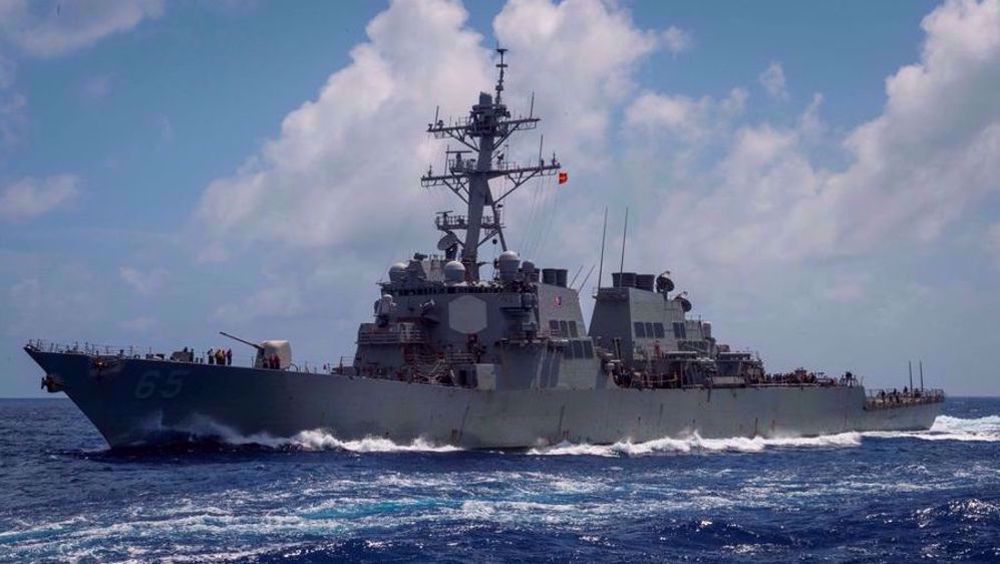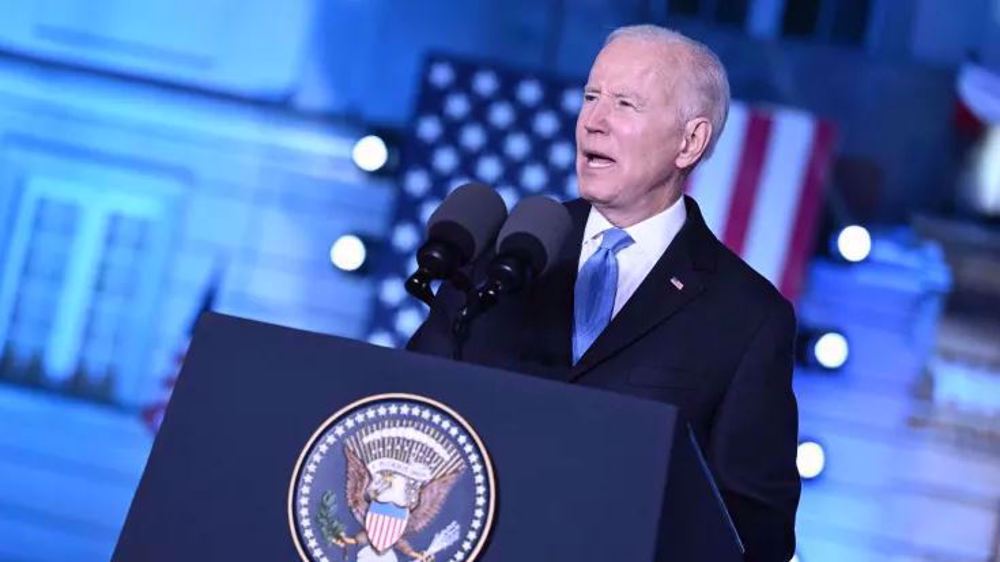US-China strategic rivalry will spill beyond the Indo-Pacific region: Analyst
US-China strategic rivalry in the Indo-Pacific will intermittently spill beyond the region into global geopolitics, according to an American analyst.
Sourabh Gupta, a senior Asia-Pacific international relations policy specialist in Washington DC, made the remarks in an interview with Press TV on Tuesday.
US President Joe Biden said China’s economic future was “more closely tied to the West” than to Russia while speaking at a news conference at NATO headquarters in Brussels on March 24, 2022.
‘China’s geopolitical future is tied to Russia’
Commenting on this, Gupta said, “China’s geopolitical future is tied to Russia but, yes, its geo-economic future is tied to the West. And so, it is true that China’s economic future is more closely tied to the West than Russia, as President Biden mentioned. But we also have to understand why this economic future is tied to the West.”
“It is tied to the West so that productivity and competition-deepening exchanges with advanced economy market forces can stimulate the Chinese economy to continue to grow, develop and reach a mature size and potential such that it will have no economic peer in the world by mid-century. At that point, China and the emerging economies of the world will tower over the combined West. And China will be too systemically important and too financially and technologically interconnected within the global economy to be ever sanctioned, let alone isolated. To the contrary, at that point of time, it will be Beijing cautioning the West that the latter needs to observe global economic norms lest China cut the West loose from the China-led Indo-Pacific economic order,” he stated.
‘China will not support Russia militarily’
The analyst said that “China will not support Russia militarily in this war with Ukraine. In this instance, China has an overwhelming interest in peace and humanitarianism, not war and weaponry. Besides, China has important political and economic equities at stake vis-a-vis the European Union, including with important Central European players such as Poland. Moscow chose this confrontation with Kyiv of its own will, and it will now have to militarily deal with the upshot of its actions with the existing tools at its disposal.”
“China will not backfill the economic effects of sanctions either during the hot phase of the conflict. As a general rule, China tends to approach the US’ sanctions cautiously. We’ve seen this play out in the case of the Iran sanctions. Even though many of these sanctions were unilaterally imposed, China takes into consideration the potential effects of secondary sanctions – particularly, insofar as they concern its own banking and financial services sector.”
“The above having been said, China will otherwise maintain normal economic relations with Russia. It will not aim to overshoot or undershoot in its engagements with Moscow relative to the economic trendline of the past decade and would be willing to threaten its own counter-sanctions against the West if it is interrupted from doing so. And over the longer term, once the conflict is firmly in the rear-view mirror, I fully expect Chinese companies to acquire stakes in Russian enterprises and sell technologies and products in sectors of the Russian economy vacated by Western players,” he stated.
‘Ukraine war may not have many global ramifications’
“The war in Ukraine is the most significant global geopolitical event since the 9/11 attacks in New York and Washington, DC. This having been said, I would be cautious to project the invasion of Ukraine as a transformational global moment. In my view, the Ukraine conflict will be a transformational moment of great local - i.e., European – significance but one with lesser global ramifications, much like 9/11 had great ramifications for the Middle East and Southwest Asia but not much for global (dis)order as such,” Gupta said.
“In Europe, so long as Mr. Putin remains in power, the post-Cold War dividing lines will become sharply entrenched for a long time to come. This Euro-Atlantic pressure will also increase Russia’s dependence on China and prevent the United States from coopting Moscow to its ends in its major power competition with Beijing. At the global level, however, a new world order per se is not (yet) upon us. Expect the United States to paint the post-Ukraine order as a democracy v autocracy moment in human history. This is a false characterization that does not account for the complexity of the global order. Rather, the continuing trend of the ‘West v. Rise of the Rest’ will be the dominant theme, interspersed with tense moments of US-China strategic rivalry in the Indo-Pacific that will intermittently spill beyond the region into global geopolitics,” he concluded.
#IR47: How 1979 Islamic Revolution ignited global movements – from South Asia to Africa and beyond
Iran’s 14th AFC futsal title after thrilling penalty shootout reinforces its Asian dominance
How Iranians made ice thousands of years before Europe
While fully prepared, Iran not after initiating regional war: Top general
Israeli ban plunges Gaza critical lifeline into risk: MSF
Iran pursues diplomacy while standing ready for war: FM Araghchi
Somalia president vows to prevent any Israeli military base in Somaliland
Pezeshkian: Iran’s nuclear logic rooted in rights enshrined in NPT











 This makes it easy to access the Press TV website
This makes it easy to access the Press TV website